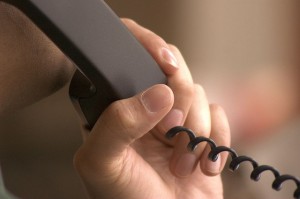Can Police Tap My Phone? They Can When…
The traditional image of a tapped phone line probably brings to mind an old-fashioned landline – a phone you might still have at home or at work. But today’s tapping brings in modern technology, from email to smartphones to tablets to the GPS that works on all those mobile devices.
In any instance, your privacy is being compromised with every instance of electronic tracking. And when the one following you is the police, you have every right to be concerned.
Protecting Your Privacy
The Wiretap Act, which originated in the pre-Internet days of 1968, was revised in 1986 and is now called the Electronic Communications Privacy Act.
Under this law, it is illegal to intentionally “intercept, disclose or use” the contents of any wire (generally meaning telephone), oral or electronic communications. The Act is meant to protect citizens against invasions of their privacy – for example, a husband who secretly records a phone conversation with his ex-wife in order to use the information against her in a custody case is performing an illegal act.
But What If the Listening Is Done by the Police?
Phone and other tapping is a common tactic used by law enforcement officials to gather evidence or prove guilt. It is legal for the police to tap your phone, but only after the officials have followed strict procedures according to the law.
- First and foremost, the police must obtain a wiretap order (similar to a warrant) that proves to a judge that there is probable cause to help solve a serious crime, like kidnapping, money laundering or drug trafficking. To be valid, the order must be authorized by the U.S. Department of Justice and signed by a District Court or Appeals judge.
- Once the wiretap order has been authorized, the police must monitor their actions to avoid illegal invasions of privacy. The wiretap order, for instance, typically has an expiration date, so that no wire surveillance may be done thereafter without another wiretap authorization. Investigators must also limit their wiretapping to only those phone conversations that are relevant to the case.
However, in the wake of today’s advanced technology, police and other officials are increasingly tracking suspects through cell phone use – and doing so without a warrant. When the American Civil Liberties Union studied police use of mobile data for tracking, “the findings were staggering,” noted AlterNet. “Warrantless cell phone tracking ‘has become a powerful and widely used surveillance tool for police officials, with hundreds of departments, large and small, often using it aggressively with little or no court oversight,’ the report found.”
Signs Your Phone Is Being Tapped
It’s not always easy to determine if your phone is being monitored, but you can look for some signs.
- Landline Phone – Listen for unusual noises like clicking or buzzing – that may indicate a recording device is in use.
- Cell Phone or Smartphone – Some indicators of electronic wiretapping include the sudden or unexplained battery drain; the phone feeling warm even if you’re not using it; a delay in shutting down after you power off; the phone lighting up by itself or installing a program on its own; and the presence of background noise including echoes or static.
Next Steps
If you have reason to believe your phone or other device is being monitored by the police – especially if you suspect there is no wiretap order tied to the surveillance – your best option is to contact a reliable attorney who has background in courtroom defense. You can learn what your options are in court and beyond – because whether you are guilty or not, you do have some rights to privacy that even the police must follow.
*Image courtesy of Martin Cathrae

